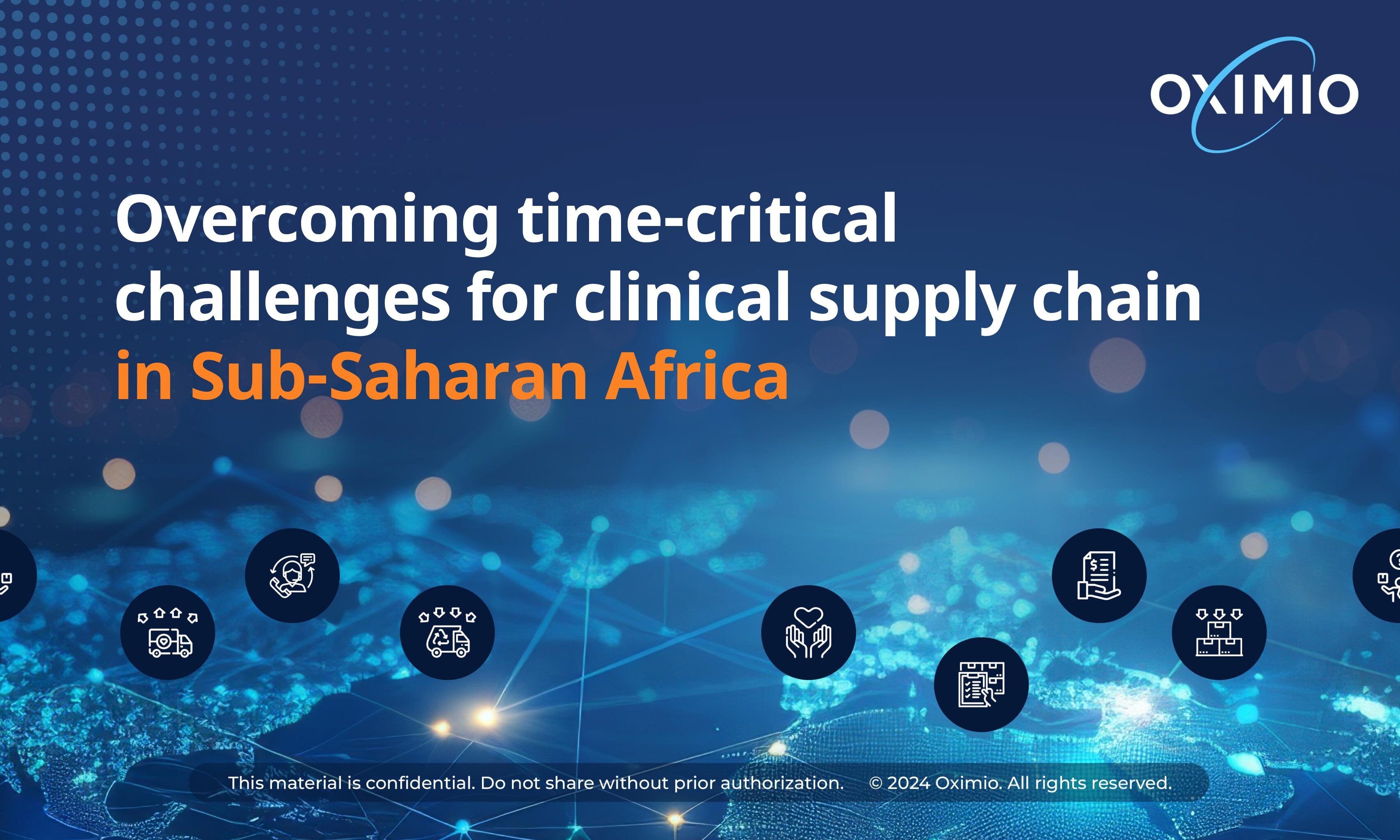
Africa has the highest disease burden of any continent in the world. With arguably the most diverse range of environments, infrastructure in remote areas can be severely limited. This is where drones can make a significant difference, covering vast distances and making deliveries in some of the most inaccessible locations worldwide. Delivery times can be cut from days to minutes.
Yet it is not always straightforward. There are extra challenges and regulatory complexities that must be fully understood before integrating drones into your clinical supply chain.
The use of drones in clinical supplies
Access to quality and affordable healthcare remains a significant challenge in many African countries, with issues such as high unemployment and insufficient healthcare infrastructure persisting.
In sub-Saharan Africa, drones are starting to play a vital role in improving access to primary health care and advancing research through active participation in clinical trials. Larger drones can carry up to 180kg of cargo over 400km.
For example, in Ghana, rapid delivery of medical supplies and vaccines to hard-to-reach locations proved crucial during the Covid-19 pandemic. Pfizer and BioNTech required ultra-cold storage to deliver mRNA Covid-19 vaccines and used drones equipped with specialised cargo boxes.
In Rwanda, one drone network delivers blood and essential medical supplies to over 350 health facilities, managing 75% of blood distribution outside the capital, Kigali. This service not only improves accessibility but also saves lives by ensuring critical supplies are available when needed.

Using drones in African clinical supplies
In this exclusive podcast – Overcoming Time-Critical Challenges for the Clinical Supply Chain in sub-Saharan Africa – experts from across the industry discuss how drones can help with delivering medical supplies and biospecimens to some of Africa’s remotest areas, sharing experiences and solutions to the unique and diverse challenges of the region.
Drone delivery systems are starting to fill significant gaps in traditional logistics, especially in regions such as sub-Saharan Africa where conventional transportation methods are inadequate. The ongoing development of drone technology and its applications in healthcare logistics could transform traditional distribution models. Yet challenges include airspace access and approval, collision risk assessment, data privacy and security regulations.
Click below to play the podcast:
Using drones to aid clinical trials
This podcast also explains the crucial role that biospecimens play in medical research and improving patient outcomes, providing insights into disease progression, efficacy markers, and the effects of treatments. They are essential for the timely delivery of vaccines, medicines, and research products to research centres and clinics, especially in hard-to-reach areas such as Africa.
However, biospecimen exports often face challenges due to the lack of dry ice for transportation, leading to potential failures. We hear how Oximio, a leading provider of clinical supply chain solutions, is now working with partners to use drones for de-risking biospecimen logistics infrastructure by deploying dry ice-filled vessels capable of maintaining -70°C for up to 21 days without dry ice top-ups.
A key partner in using drones in the clinical supply chain and contributor to this podcast is VillageReach, which is a not-for-profit organisation that works with governments and private sectors to improve access to primary healthcare in Africa. VillageReach has been using drones to strengthen logistics and make costly and important clinical trials more accessible. As well as reducing delivery times, data shows that drone adoption has increased in regions previously considered unreachable.
The main speakers in this podcast are:
- Rob van den Bergh. Managing Director for sub-Saharan Africa for Oximio
- Olivier Defahh. Drones for Health Program Lead for VillageReach
- Michael Merritt. Head of Commercial Drone Services at Sky Ports
To read the full presentation from this podcast, download the document below.



